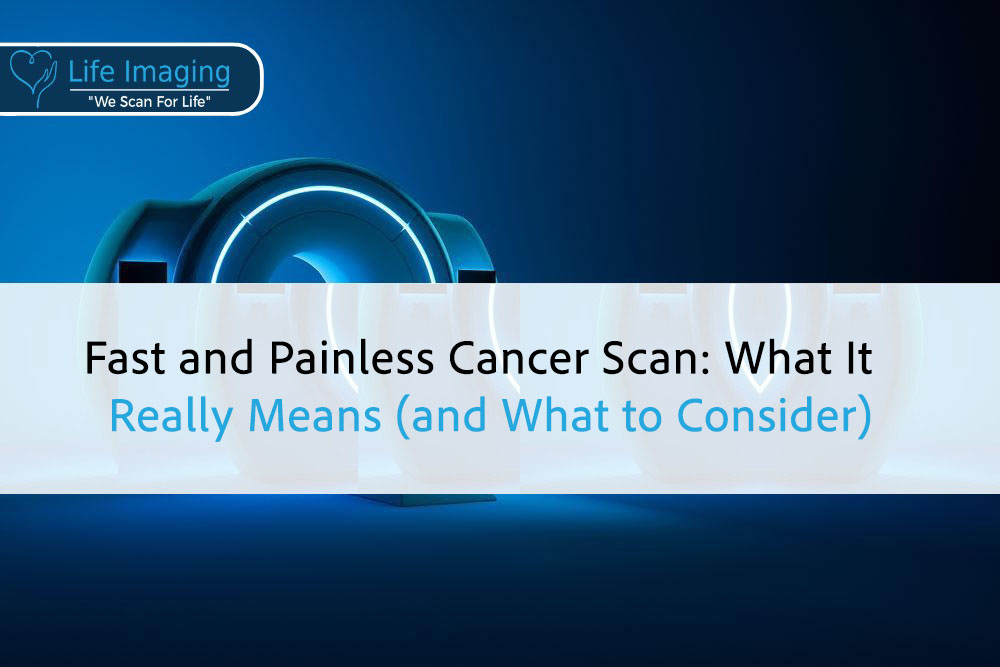
Fast and Painless Cancer Scan: What It Really Means (and What to Consider)
Fast and Painless Cancer Scan: What It Really Means (and
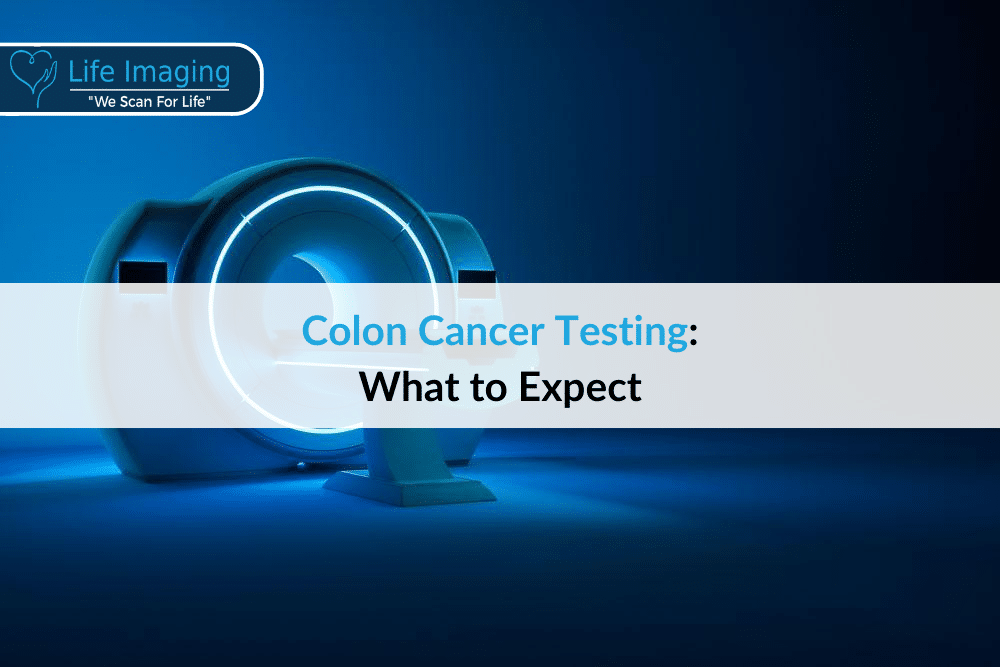
Colon cancer is a significant health concern, but early detection can make a world of difference. If you’re in Miami and considering getting tested, it’s essential to know what to expect. Life Imaging Fla specializes in the early detection of heart disease and cancer, offering state-of-the-art imaging services designed to catch potential issues early when they’re most treatable.
Testing for colon cancer typically involves several procedures, each with its own set of preparations and expectations. By understanding what lies ahead, you can approach the process with confidence and ease. From initial consultations to the details of various testing methods such as colonoscopies, CT colonography, and fecal tests, having clear information ensures you’re well-prepared.
At Life Imaging Fla, we prioritize patient comfort and use advanced technology to provide accurate diagnoses. Our team of specialists is committed to guiding you through every step, answering questions, and addressing concerns.
Proactive health management starts with awareness and timely action. In this comprehensive guide, we’ll delve into the different types of colon cancer tests, what preparations are necessary, and what you can expect during and after each procedure. Knowing what to expect can help you make informed decisions and take charge of your health with greater peace of mind. Stay informed and take the necessary steps towards early detection; it can save your life.
Let’s explore what colon cancer testing entails, helping you navigate this critical aspect of health maintenance effectively.
Colon cancer is a common but serious disease. Early detection is crucial because it can significantly improve treatment outcomes. Regular testing is especially important for people who are 50 years old or older, or those with a family history of colon cancer. Detecting the disease early can lead to more effective treatment and a higher chance of survival.
There are several methods to test for colon cancer. Each type of test has its own procedures, preparation requirements, and benefits. Knowing the differences can help you choose the test that’s right for you.
A colonoscopy is one of the most common and effective methods for detecting colon cancer. During this procedure, a long, flexible tube with a camera on the end is inserted into the rectum and guided through the colon. This allows the doctor to see the entire colon and rectum.
Before a colonoscopy, you will need to clean out your colon. This usually involves following a special diet and taking a laxative. Your doctor will give you specific instructions on what to eat and drink, usually requiring you to avoid solid foods the day before the test and to drink plenty of clear fluids.
A colonoscopy usually takes about 30 to 60 minutes. You will be given a sedative to help you relax and feel comfortable. Most patients don’t feel pain during the procedure, and many don’t remember it afterward. The doctor will use the camera to look for any abnormal growths or polyps. If any are found, they can often be removed during the same procedure.
After the colonoscopy, you will need someone to drive you home because of the sedative. You might feel bloated or have cramping, but these symptoms usually go away within a few hours. Your doctor will let you know if any polyps were found and, whether they were removed or if further testing is needed.
CT colonography, also known as virtual colonoscopy, is a less invasive alternative to a standard colonoscopy. This test uses X-rays and a computer to create detailed images of the colon and rectum.
Preparation for a CT colonography is similar to that of a standard colonoscopy. You will need to clean out your colon by following a special diet and taking a laxative. Clear guidelines will be provided by your healthcare provider to ensure your colon is clean for accurate images.
During a CT colonography, you will lie on a table, and a small tube will be inserted into your rectum to inflate the colon with air or carbon dioxide. This helps create clearer images. You will then pass through a CT scanner, which takes detailed pictures of your colon and rectum.
CT colonography is usually quick, taking about 10 to 15 minutes. There is usually no need for sedation, and you can resume normal activities immediately after the test. Your doctor will review the images and let you know if any abnormalities were found.
Fecal tests are less invasive and can be done in the comfort of your own home. These tests check for hidden blood (fecal occult blood test) or abnormal DNA (stool DNA test) in your stool, which can be signs of colon cancer.
There are different types of fecal tests, including the fecal immunochemical test (FIT) and the stool DNA test. Each test has its own method for collecting and analyzing stool samples. Your doctor will provide specific instructions for collecting and submitting your sample.
Preparation for a fecal test is usually simple. You may need to avoid certain foods or medications before collecting your stool sample. Your doctor will provide detailed instructions to ensure accurate results.
For a fecal test, you will collect a small stool sample using a kit provided by your healthcare provider. The sample is then sent to a lab for analysis. The process is quick and painless, making it a convenient option for many people.
Results from fecal tests are usually available within a few days. If blood or abnormal DNA is found in your stool, further testing, such as a colonoscopy, may be recommended to determine the cause.
Early detection of colon cancer can lead to better treatment outcomes. Discovering cancer in its early stages often means the cancer is smaller and has not spread, making it easier to treat effectively. This can lead to a higher survival rate and less aggressive treatment options.
Regular screening can help catch colon cancer before symptoms appear. This is important because symptoms often don’t present until the cancer has progressed. By keeping up with recommended screening tests, you can reduce your risk and catch any potential issues early.
Colon cancer testing is recommended for anyone over the age of 50. If you have a family history of colon cancer or certain genetic conditions, your doctor may recommend starting screenings earlier. People with certain gastrointestinal diseases or lifestyle factors, such as smoking or a high-fat diet, may also be at higher risk.
The frequency of colon cancer tests depends on the type of test and your personal risk factors. For example, a colonoscopy is usually recommended every 10 years for people at average risk. Fecal tests may be recommended annually. Your doctor will provide guidance on the best testing schedule for you.
Some people feel anxious about colon cancer testing, but understanding what to expect can help ease these worries. The procedures are generally safe, and any discomfort is usually minimal. Remember, the benefits of early detection far outweigh any temporary inconvenience.
It’s important to prepare for your colon cancer screening appointment. Write down any questions you have beforehand to discuss with your doctor if you’re undergoing a procedure that requires sedation, plan to have someone drive you home.
Before your test, discuss any medical conditions you have, medications you’re taking, and any previous surgeries. This information can help your doctor recommend the best test for you and ensure your safety during the procedure.
Each colon cancer testing method offers different benefits and processes. Understanding these methods helps you make an informed decision about which test is right for you.
The high-sensitivity FOBT checks for hidden blood in the stool, which can be a sign of colon cancer. This test is simple and non-invasive.
Preparation for this test is straightforward. You might need to avoid certain foods and medications a few days before the test. Your doctor will provide specific instructions to ensure accurate results.
For this test, you will use a kit to collect small stool samples over several days. These samples are then sent to a lab for analysis. The test looks for any hidden blood in your stool.
If the test detects hidden blood, further testing, such as a colonoscopy, may be recommended to find the source of the bleeding. Your doctor will explain the next steps based on your results.
A flexible sigmoidoscopy allows doctors to examine the lower part of the colon and rectum. This test uses a flexible tube with a light and camera to look for abnormal growths.
Before the procedure, you may need to follow a special diet and take a laxative to clean out your colon. Your doctor will provide specific instructions on how to prepare.
During the procedure, you will lie on your side while the doctor inserts a flexible tube into your rectum. The doctor will then examine the lower part of the colon for any abnormalities. The procedure usually takes about 10-20 minutes.
You can typically resume normal activities immediately after the procedure. Some mild discomfort or bloating is possible, but these symptoms usually go away quickly. Your doctor will discuss any findings and the next steps.
Early detection of colon cancer greatly increases the chances of successful treatment. When detected early, the cancer is more likely to be in its initial stages, making treatment more effective and less invasive.
Being aware of and monitoring symptoms can prompt earlier testing. Common symptoms of colon cancer include changes in bowel habits, blood in the stool, unexplained weight loss, and persistent abdominal discomfort.
Regular colon cancer testing is crucial, especially for those at higher risk. Following the recommended screening schedule can detect cancer early or even prevent it by identifying and removing polyps before they become cancerous.
In addition to regular testing, adopting healthy lifestyle habits can help reduce the risk of colon cancer. A balanced diet rich in fruits, vegetables, and whole grains, along with regular exercise, can contribute to better colon health.
Consider eating a diet high in fiber and low in red and processed meats. Maintaining a healthy weight, avoiding tobacco, and limiting alcohol consumption are also important steps.
Genetics can play a significant role in the risk of developing colon cancer. If you have a family history of colon cancer, you may need to start screening earlier and undergo more frequent testing.
Genetic counseling can help you understand your risk and guide you in making informed decisions about screening and preventive measures. Discuss your family history with your doctor to determine if genetic counseling is right for you.
Advances in technology are making colon cancer testing more accurate and less invasive. Staying informed about these advancements can help you choose the best testing options.
Researchers are constantly developing new testing methods that improve the accuracy and convenience of colon cancer screening. For example, some new methods may require less preparation or offer more detailed images.
New techniques can provide clearer results and may be more comfortable for patients. These advances can also lead to earlier detection and better outcomes for those diagnosed with colon cancer.
Keeping up with the latest developments in colon cancer testing is important. Regularly talking to your doctor about new options and what’s best for you ensures you receive the most effective care.
Choosing the right colon cancer test depends on various factors, including your age, medical history, and risk factors. Discussing these factors with your doctor helps determine the most suitable testing method.
Consider your comfort level, the accuracy of the test, and how often it needs to be repeated. Your doctor can help you weigh these factors and make an informed decision.
A personalized testing plan is tailored to your specific needs and risk factors. By following a plan designed for you, you can ensure that you’re taking the necessary steps to detect colon cancer early.
It’s common to feel anxious about colon cancer testing, but understanding the procedures can help alleviate these fears. The benefits of early detection far outweigh the temporary discomfort.
Many people worry about the preparation or the test itself. Talking to your doctor about your concerns can help put your mind at ease. Knowing what to expect can make the process less intimidating.
Support groups and educational resources can also help you feel more comfortable about testing. Connecting with others who have gone through the process can provide encouragement and practical tips.
If you’re proactive about your health, encourage family members to get screened as well. Sharing your experience and the importance of early detection can motivate others to take action.
Talking openly about colon cancer testing with your family can help them understand the importance of early detection. Encourage them to speak with their doctors and get screened regularly.
Support each other by sharing information and providing encouragement. Family support can make the testing process easier for everyone involved.
Taking charge of your health through regular colon cancer testing is essential. Knowing what to expect and following through with recommended screenings can lead to early detection and better outcomes. By staying informed, discussing options with your doctor, and encouraging loved ones to get tested, you contribute to better health for yourself and your community.
While colon cancer tests are generally safe, it’s important to be aware of potential risks and complications. Understanding these risks helps you make an informed decision.
A colonoscopy is a common procedure with minimal risks, but complications can occur. These can include bleeding, especially if a biopsy is taken or a polyp is removed. Rarely, the colon or rectum might be perforated, which is a more serious condition requiring further medical treatment.
Following your doctor’s instructions carefully can greatly reduce the risk of complications. This includes adhering to dietary restrictions and preparation steps before the test. Make sure to inform your doctor of any medications you are taking, as some might need to be paused before the procedure.
CT colonography is generally safe, but it has its own set of risks. These can include exposure to radiation and discomfort from the air or carbon dioxide used to inflate the colon. Rare complications include perforation of the colon.
To minimize these risks, it’s crucial to follow all preparation guidelines provided by your doctor. Discuss any existing health conditions, such as kidney issues or allergies, which might increase the risks.
It’s reassuring to know that the benefits of early detection far outweigh the potential risks. Modern advancements in medical technology have made these tests safer and more effective than ever before.
After your colon cancer test, proper aftercare ensures a smooth recovery. Knowing what to expect can help you manage any discomfort and identify any signs that may require further medical attention.
After a colonoscopy, you’ll likely feel groggy due to the sedative. Arrange for someone to drive you home. Drink plenty of fluids to replenish those lost during colon preparation. Avoid heavy or greasy foods for the first 24 hours to prevent nausea. Inform your doctor if you experience prolonged pain, bleeding, or fever.
For a CT colonography, aftercare is generally simpler. You can usually resume normal activities immediately. Drink fluids to help expel any remaining air from the colon. Contact your doctor if you experience severe pain or notice unusual symptoms.
Fecal tests require no specific aftercare since they are non-invasive. Simply wait for your test results and follow up with your doctor to discuss any findings and next steps.
Knowing when to seek medical help is vital. If you experience severe abdominal pain, heavy bleeding, or signs of infection, such as fever or persistent swelling, contact your healthcare provider immediately.
Understanding the cost of colon cancer testing helps you plan and avoid unexpected expenses. Costs can vary depending on the type of test and your health insurance coverage.
A colonoscopy can be more expensive than other types of tests, particularly if polyps are removed or biopsies are taken. Health insurance often covers this procedure, especially for people at higher risk, but it’s important to check your plan’s details.
CT colonography is usually less costly than a standard colonoscopy but may not be covered by all insurance plans. Insurance might cover this test if you are unable to undergo a standard colonoscopy.
Fecal tests are generally the least expensive and are often fully covered by insurance. These tests are a cost-effective option for regular screening, especially if you’re at average risk for colon cancer.
Many healthcare providers offer financial assistance programs to help cover the cost of colon cancer tests. Discuss any concerns about cost with your provider to explore available options.
Check with your insurance provider to understand what is covered under your plan. It’s a good practice to verify coverage before scheduling any tests to avoid surprise expenses.
Colon cancer testing can be stressful. Recognizing the psychological impact and seeking support can make the process easier.
It’s normal to feel anxious about colon cancer testing. Sharing your concerns with your doctor can help. They can provide detailed information about what to expect, which can ease your worries.
Consider seeking support from friends, family, or support groups. Talking about your feelings can provide comfort and reassurance. Support groups, both online and in-person, offer a platform to share experiences and gain insights from others who have gone through similar experiences.
Prepare emotionally by educating yourself about the procedure. Knowing the steps can help alleviate fear of the unknown. Breathing exercises and relaxation techniques can also help manage anxiety before the test.
After the test, allow yourself time to recover emotionally as well as physically. Whether the results are positive or negative, it’s important to give yourself time to process the information and seek support if needed.
Healthcare providers play a crucial role in making the testing process smooth and less intimidating. They provide the necessary information, perform the tests, and guide you through next steps.
Choosing a healthcare provider you trust is essential. Ask for recommendations or read reviews to find a doctor who specializes in colon cancer screening and makes you feel comfortable.
Don’t hesitate to ask questions before, during, and after your test. Understanding the process and knowing what to expect can help alleviate anxiety and ensure you’re well-prepared.
Good healthcare providers offer thorough follow-up care. This includes discussing your results, recommending further tests if needed, and guiding you on preventive measures.
Open communication with your healthcare provider ensures you receive the best possible care. Share any concerns or symptoms and follow their advice for optimal health outcomes.
Spreading awareness about colorectal cancer and the importance of early detection can save lives. By sharing information and encouraging open dialogue, you contribute to a healthier community.
Share what you have learned about colon cancer testing with friends and family. Knowledge about the benefits of early detection and regular screening can encourage others to get tested.
Get involved in community efforts to raise awareness about colon cancer. Participating in awareness campaigns, fundraisers, and educational events can make a significant impact.
Support local organizations that focus on cancer awareness and early detection. Volunteer your time or make a donation to help them reach more people and provide essential services.
Taking charge of your health through regular colon cancer testing is crucial. By understanding various testing methods, the importance of early detection, and the necessary steps for preparation and aftercare, you’ve equipped yourself with valuable knowledge. Regular screening not only helps in identifying cancer at an early and more treatable stage but also plays a significant role in preventing it by detecting and removing precancerous polyps.
If you’re located in Miami and ready to take the next step in safeguarding your health, consider seeking professional and comfortable testing services. Staying proactive with your health doesn’t have to be daunting.
Visit Life Imaging Fla to learn more about their comprehensive cancer screening services. Our state-of-the-art facility and experienced staff are dedicated to providing you with the best care possible, ensuring your comfort and peace of mind throughout the process. Don’t wait – schedule your screening today and take a significant step towards a healthier future.

Fast and Painless Cancer Scan: What It Really Means (and

Introduction Your heart works hard every second of the day,
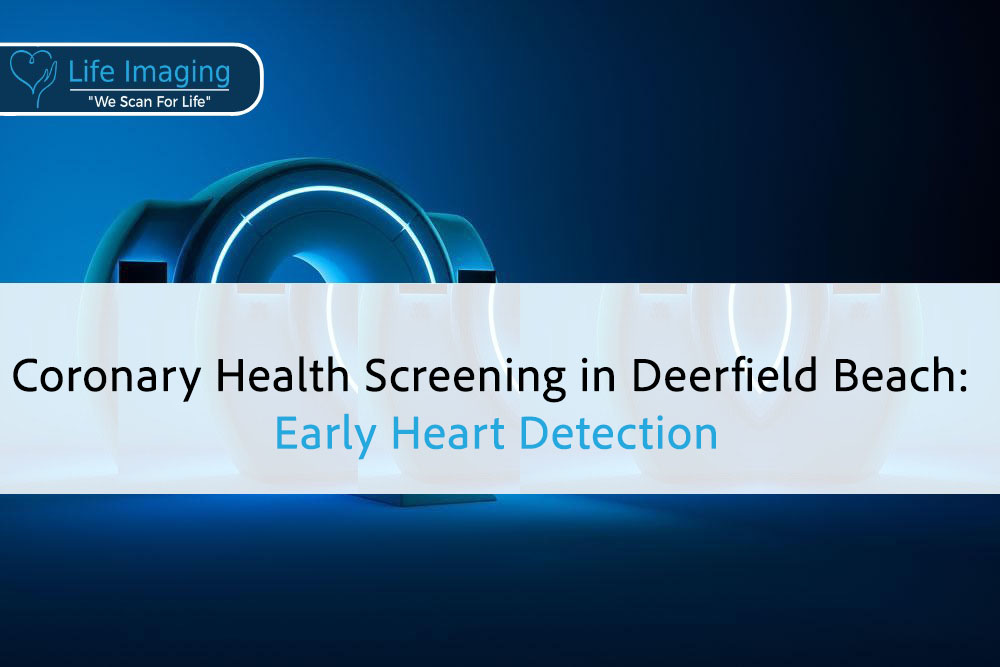
Introduction Your heart works around the clock, but changes inside

Introduction Your heart works nonstop, often without a single complaint.
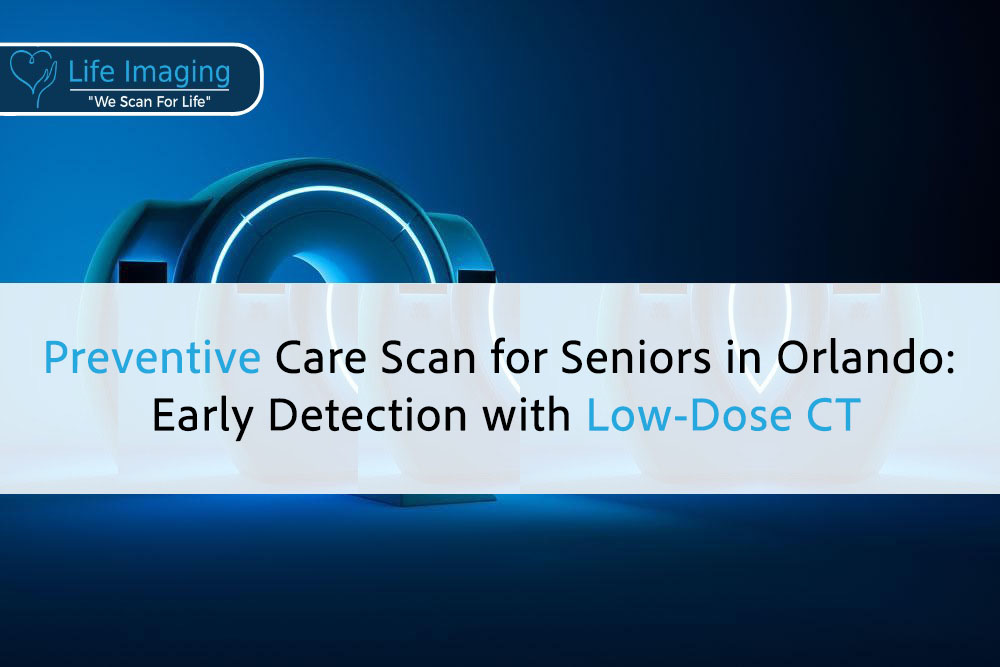
Introduction The best part of getting older is having time
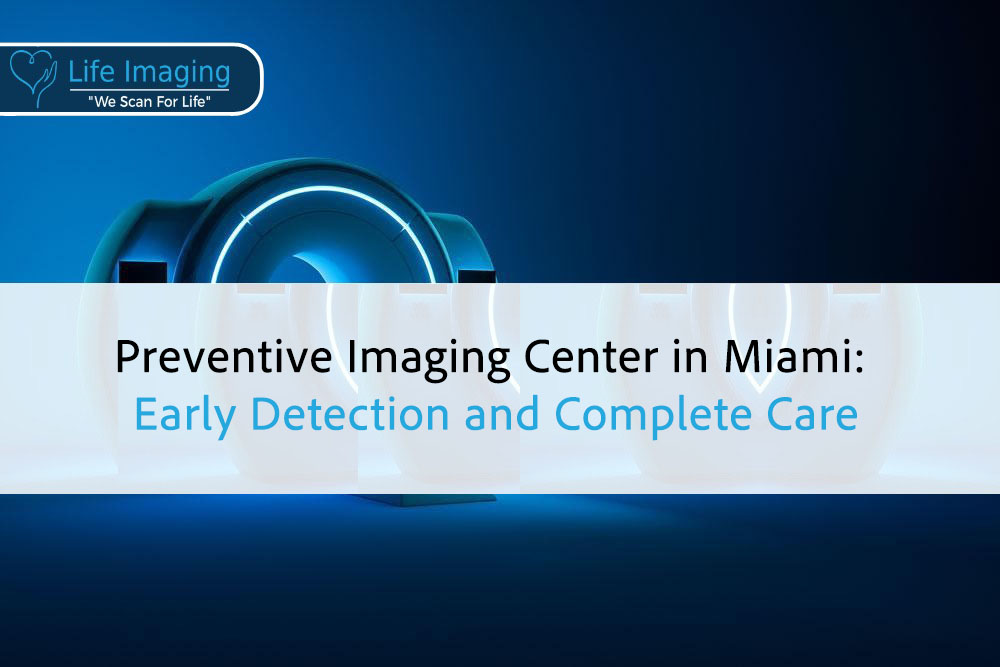
Introduction Good health isn’t just about treating problems, it’s about

* Get your free heart scan by confirming a few minimum requirements.
Our team will verify that you qualify before your scan is booked.
Copyright © 2025 Life Imaging – All Rights Reserved